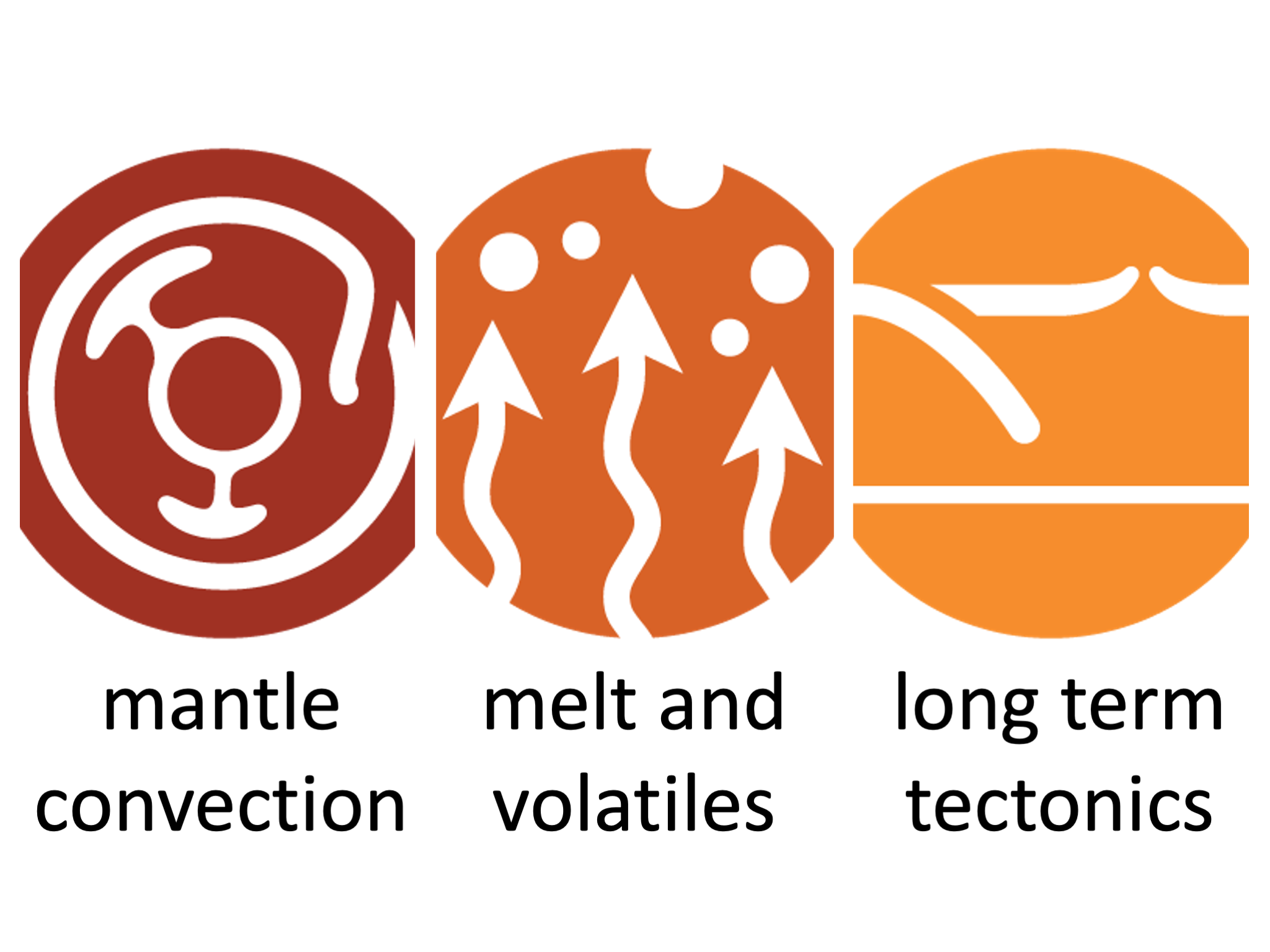2021 SMOREs
2021 SMOREs
Summer MOdeling Research Experiences
June 21 - August 20
MULTIPLE LOCATIONS

Members of the geodynamics community come from a broad range of fields. Many of these fields are among the least diverse in STEM. The challenges for computational geodynamics are not only to increase competency in earth and computational science but also in recruiting from an undergraduate student pool that in itself lacks diversity. The CIG Summer MOdeling Research Experiences (SMOREs) program will focus on addressing these issues by providing underrepresented groups funded training and research opportunities.
In detail, the SMOREs program provides training and research opportunities in computational geodynamics, with research projects focused on numerical modeling of tectonic processes on Earth and other planets within our solar system. The training and research projects involve a wide range of disciplines and skill sets, including advanced data analysis, best practices in programming, designing simulations to test hypotheses, statistical model validation, and use of high-performance computing resources. Combined, these tools will be used to address such fundamental questions as “What controls deformation at tectonic plate boundaries?”, “How does magma move and evolve within tectonic plates?”, and “How is convection within extraterrestrial planets different from Earth?”.
The program will kick-off with two weeks of virtual tutorials. The first week will introduce participants to geodynamics processes and the fundamentals of programming in python. The second week will introduce participants to the fundamental methods used in geodynamic modeling, including advanced data analysis with python, plotting geographic data, version control, and use of geodynamic software on high-performance computing resources. The second week will be open to both graduate students, postdocs, and internship participants. See separate event website for more information.
Participants will present their research at the end of the summer and have the opportunity to present at the annual Fall meeting of the American Geophysical Union.
Application Opens: March 3, 2021
Application Closes: April 5, 2021 CLOSED
Notification of Acceptance Begins: May 1, 2021 IN PROGRESS
Apply here.
ORGANIZERS
Lorraine Hwang, UC Davis
John Naliboff, UC Davis
MENTORS
-
Prof. John Naliboff, New Mexico Tech, Lead; Prop. Jolante van Wijk, New Mexico Tech; and Prof. Laura Waters, New Mexico Tech
-
Prof. Catherine Cooper, Washington State University, Lead; Prof. Eric Mittelstaedt, University of Idaho
-
Prof. Magali Billen, University of California, Davis; Prof. Maxwell Rudolph, University of California, Davis, Lead
-
Prof. Dave Stegman, University of California, San Diego, Lead; Dr. Suzanne Smrekar, NASA Jet Propulsion Laboratory, Pasadena
See Project Descriptions for more information on research opportunities.
Workshop Information
DATES
SMOREs is a 9 week summer undergraduate research program. Students will begin June 21 and participate in 2 weeks of virtual tutorials before dedicating time to their research project.
LOCATION
Multiple. Location will depend on COVID-19 protocols in place during Summer 2021 and may be remote or onsite.
SUPPORT
Students will receive a stipend of $5400 ($600 per week) plus travel costs up to $800 to their REU site. Additional support is available to present at a professional meeting such as AGU. Support is available for housing.
APPLICATION
Please read through How to Apply before submitting the application.
QUALIFICATIONS
Undergraduate majors in good standing enrolled full-time in an accredited public or private college or university in the United States or its territories. Students should have at least one semester/quarter remaining in their undergraduate education. Students should have finished coursework through 2nd year calculus and lower division physics. Programing experience, while not required, is highly recommended. We highly encourage applications from underrepresented groups in STEM.
To be eligible, you must be a U.S. citizen, non-citizen national, or permanent resident.
Questions
email: events@geodynamics.org
